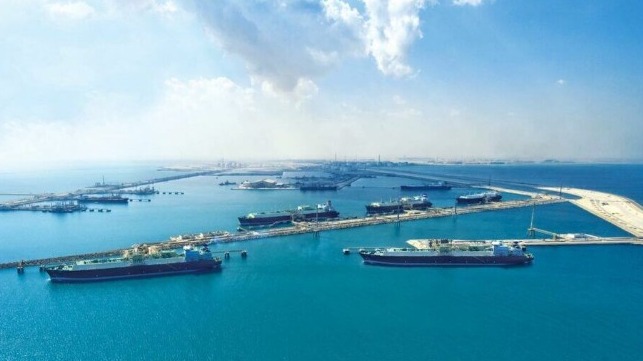Germany Finalizes a Long-Term LNG Supply Deal with Qatar

After almost a year of negotiations, Germany has finally signed a deal for LNG import with Qatar. The 15-year long-term contract, which takes effect starting in 2026, will be the next key step in the country’s efforts to develop its LNG imports. Since the Russia-Ukraine war began, Germany has launched several initiatives to become less dependent on Russian energy sources
The state-owned Qatar Energy signed a sale contract agreement with the American energy multinational ConocoPhillips, which will execute the LNG exports to Germany. The agreement builds a long-term supply running till at least 2041.
The negotiations between Germany and Qatar on LNG supply had started in March 2022, but stalled due to a disagreement on contract length. In the deal signed on Tuesday, Qatar will supply Germany with two million tons of LNG annually. The gas will be sourced from Ras Laffan to Germany’s northern LNG terminal of Brunsbuettel. The agreed quantities will be delivered ex-ship to the German receiving terminal.
The LNG supply from Qatar however represents only about three percent of Germany’s annual gas demand. Russian gas had accounted for more than half of Germany’s total supplies.
In trying to cover the gap, Germany’s economy minister Robert Habeck, on Tuesday revealed that German utilities Uniper and RWE had been asked by the government to secure more gas on the international market.
However, Habeck warned that energy companies must realize Germany will in future be purchasing less gas to adhere to climate goals. In this case, the companies must be ready to redirect their volumes to other countries.
Recently, Germany finished constructing its first LNG import terminal at Wilhelmshaven on the North Sea. The terminal is soon expected to receive its first LNG supply from Australia. Last week, the floating storage unit for Deutsche ReGas’s terminal in Lubmin arrived in Germany and pending final approvals and some modifications to the vessel was expected to begin operations by early December.

that matters most
Get the latest maritime news delivered to your inbox daily.
Germany has chartered five floating storage and regasification units, as the country seeks to boost energy security for this winter season.
Qatar at the same time is moving rapidly to build its network as it invests in production expansion and competes with the United States to be the top exporter of LNG. Last week, QatarEnergy signed a 27-year deal with China’s Sinopec for LNG supply. With the growth in LNG demand, Qatar is aiming to increase production at the North Field East and North Field South projects, raising it from the current 77 million tons to 126 million tons by 2027.
